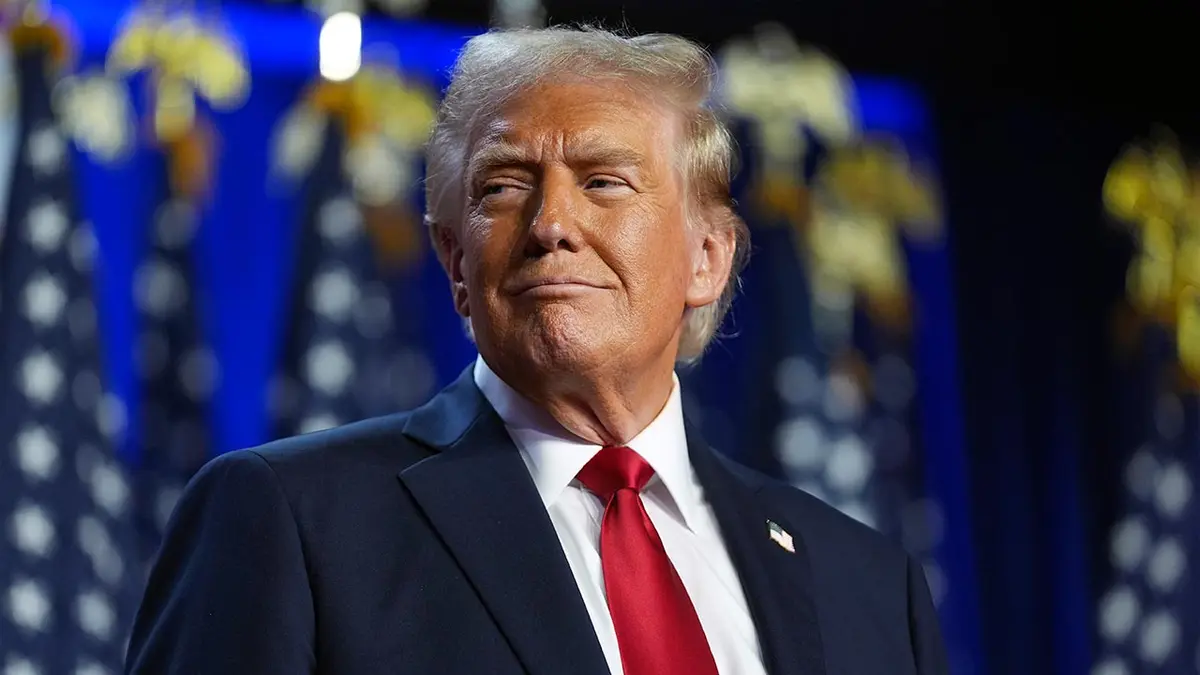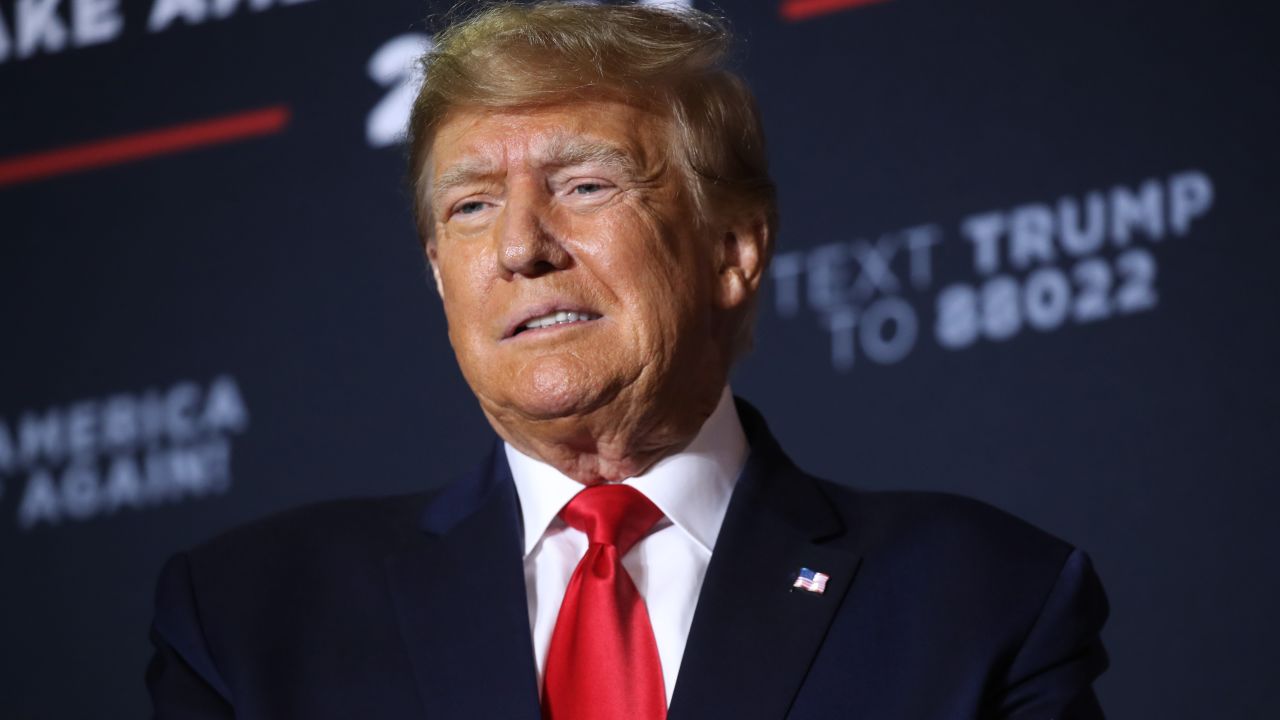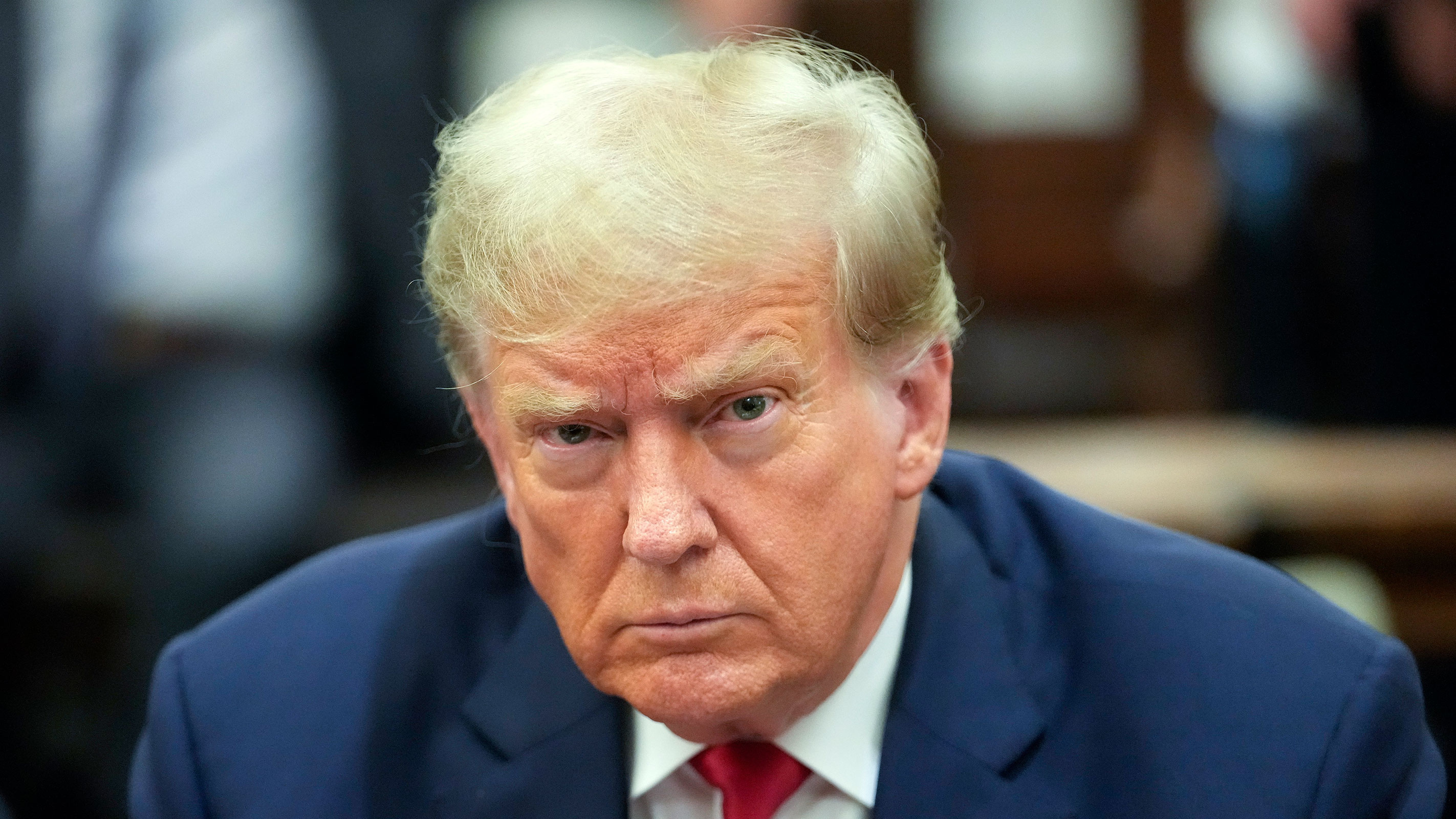Trump's 'Barbara Ann' Parody: A Shocking Political Statement
Table of Contents
- Introduction
- The Genesis of Controversy: "Bomb Iran"
- Trump's Digital Dissemination and Its Immediate Fallout
- The Music World Reacts: Brian Wilson's Estate Speaks Out
- Political Implications and Expert Warnings
- Public and Media Reception: A Divisive Echo Chamber
- Trump's Communication Style: Unconventional and Unfiltered
- The Broader Context: Geopolitical Tensions and Cyber Warfare
- The Enduring Impact of a Viral Moment
- Conclusion
Introduction
In a move that sent ripples of shock and controversy across the political and cultural landscape, former President Donald Trump recently shared a highly provocative parody video. Set to the familiar tune of "Barbara Ann," this particular rendition, known as "Bomb Iran," quickly became the epicenter of a heated debate, drawing sharp criticism from various quarters, including the estate of Beach Boys legend Brian Wilson. This incident wasn't just about a song; it was a powerful, albeit controversial, statement that highlighted the unique and often unpredictable nature of Trump's communication style and its far-reaching implications.
The incident surrounding Trump's offensive 'Barbara Ann' parody shocks underscored the delicate balance between political rhetoric, artistic integrity, and international diplomacy. As the video, featuring inflammatory lyrics about turning Iran into a "parking lot," circulated widely, it ignited discussions about the responsibilities of public figures, the power of satire, and the potential for such content to escalate already tense geopolitical situations. Understanding the full scope of this event requires delving into its origins, the reactions it provoked, and the broader context in which it unfolded.
The Genesis of Controversy: "Bomb Iran"
The song at the heart of this recent political firestorm is "Bomb Iran," a parody that gained notoriety long before its recent resurgence on social media platforms. Its re-emergence through a former president's social media feed brought it back into the spotlight, transforming a decades-old satirical piece into a modern-day flashpoint for geopolitical tensions and domestic political discourse.
Origins of the "Barbara Ann" Parody
To fully grasp the context, one must first understand the original song it parodies. "Barbara Ann" is a classic, originally released in 1961 by The Regents. However, it was the 1962 cover by The Beach Boys that cemented its place in popular culture, becoming an iconic surf-rock anthem. Its catchy, sing-along chorus made it a beloved hit, far removed from any political connotations.
The parody, "Bomb Iran," was created by Vince Vance & The Valiants in 1980. It took the upbeat melody of "Barbara Ann" and twisted its lyrics into a starkly different, politically charged message. Lines such as "Ol' Uncle Sam's getting pretty hot, time to turn Iran into a parking lot" and "Tell the Ayatollah, 'gonna put you in a box!'" replaced the innocent beach-party themes with aggressive, jingoistic rhetoric. This transformation from a carefree tune to a provocative political statement is precisely what made Trump's offensive 'Barbara Ann' parody shocks so potent and divisive.
The 1980s Context: Iran Hostage Crisis
The original release of "Bomb Iran" in 1980 was not random; it was a direct product of its time. The United States was in the throes of the Iran Hostage Crisis, a harrowing period where 52 American diplomats and citizens were held captive in Tehran for 444 days. This event deeply impacted the American psyche, fostering widespread frustration and a desire for decisive action against Iran. The song, in its crude and aggressive way, tapped into this national sentiment, providing an outlet for public anger and a simplistic call for retribution. While controversial even then, its re-sharing by a former president in a different geopolitical climate amplified its impact exponentially.
Trump's Digital Dissemination and Its Immediate Fallout
President Donald Trump's decision to share this parody video on Truth Social, his own social media platform, was a deliberate act with immediate and far-reaching consequences. The video reportedly featured footage of bombs being dropped, set to the "Bomb Iran" lyrics. This wasn't merely a casual share; it was a calculated move that aligned with his characteristic communication style – direct, provocative, and often designed to generate a strong reaction.
The timing of the post also drew significant attention. It came shortly after reports of the US bombing several nuclear facilities in Iran, adding a layer of perceived endorsement to the song's aggressive message. Critics were quick to point out the potential for such a post to escalate tensions, especially given the delicate nature of US-Iran relations. The digital dissemination of this content by a figure of Trump's stature meant it reached millions instantly, sparking outrage, debate, and concern among politicians, analysts, and the general public. The sheer audacity of Trump's offensive 'Barbara Ann' parody shocks many who viewed it as irresponsible and dangerous.
The Music World Reacts: Brian Wilson's Estate Speaks Out
Perhaps one of the most significant reactions to Trump's video came from the music world itself, particularly from the estate of Beach Boys legend Brian Wilson. The condemnation was swift and unequivocal. The estate publicly denounced Trump for his "unauthorized release" of the parody, making it clear that they did not endorse the message or the use of the song's melody for such purposes. This legal and ethical challenge highlighted the clash between political expression and artistic rights, especially when the content is deemed offensive or inflammatory.
The statement from Wilson's estate underscored a fundamental principle: while parody is a recognized form of artistic expression, its use in a political context, particularly one advocating violence, can cross a line, especially when unauthorized. The outrage from the music community was palpable, with many echoing the sentiment that "The Beach Boys should sue" and expressing dismay that such content was shared, particularly just two weeks after Brian Wilson's death, a time when his legacy was being celebrated.
The Legacy of The Beach Boys and "Barbara Ann"
The Beach Boys, led by the visionary Brian Wilson, represent an era of American music defined by harmony, surf culture, and innocent joy. Their songs, like "Barbara Ann," evoke feelings of summer, freedom, and youthful exuberance. For such a beloved and iconic tune to be repurposed for a song advocating military aggression against a sovereign nation was seen by many as a desecration of its legacy. The contrast between the original song's lighthearted spirit and the parody's dark message made the incident even more jarring. The estate's condemnation was not just about copyright; it was about protecting the integrity and spirit of Wilson's work from being associated with a message they found abhorrent, further amplifying the impact of Trump's offensive 'Barbara Ann' parody shocks.
Political Implications and Expert Warnings
Beyond the cultural outrage, the sharing of "Bomb Iran" by Donald Trump carried significant political weight and prompted serious warnings from foreign policy experts. Such rhetoric, especially from a former President and current presidential frontrunner, can have tangible effects on international relations. Experts cautioned that using such inflammatory language, even in a satirical form, could be perceived as a direct threat, potentially escalating tensions with Iran and undermining diplomatic efforts.
The lyrics themselves, advocating for turning a country into a "parking lot," are not just hyperbole; they are a direct call for destruction that could be interpreted as a precursor to military action. This kind of communication risks:
- **Fueling Misinformation:** It can be taken literally by some audiences, both domestically and internationally, leading to misunderstandings and heightened fear.
- **Undermining Diplomacy:** Aggressive rhetoric makes it harder for diplomats to engage in constructive dialogue and find peaceful resolutions to conflicts.
- **Inciting Extremism:** Such language can embolden hardliners on all sides, pushing for more aggressive actions rather than de-escalation.
- **Limited Military Effectiveness:** Experts also warn that while such a song might project strength, it does not translate into effective military strategy and can even complicate real-world operations by revealing intentions or provoking pre-emptive actions.
Public and Media Reception: A Divisive Echo Chamber
The public and media reception to Trump's "Bomb Iran" video was, predictably, highly polarized, reflecting the deep divisions within American society. For his supporters, the video was often viewed as a refreshing display of his unfiltered honesty and a demonstration of his "tough on Iran" stance. Comments like "It is so unique to have a president that lets his hair down like this in order to allow the world to know what he really feels like saying" captured this sentiment, portraying it as authentic and relatable.
Conversely, mainstream media outlets and critics largely condemned the video as reckless, offensive, and dangerous. News organizations like AP News and CNN extensively covered the backlash, focusing on the ethical implications and the potential for real-world harm. The incident became a prime example of how Trump's communication style often bypasses traditional political decorum, creating a media frenzy and forcing a reaction from all corners. The controversy over Trump's offensive 'Barbara Ann' parody shocks became a microcosm of the broader political landscape, where actions are interpreted through pre-existing ideological lenses.
Trump's Communication Style: Unconventional and Unfiltered
This "Barbara Ann" parody incident is not an isolated event but rather a characteristic example of Donald Trump's unique and often unconventional communication style. Throughout his presidency and beyond, Trump has consistently leveraged social media to directly address his base, bypass traditional media filters, and deliver messages that are often provocative, unpolished, and designed to elicit strong emotional responses. This approach stands in stark contrast to the carefully curated public personas of most political leaders.
His use of platforms like Truth Social allows him to control the narrative, disseminate content without editorial oversight, and engage in a form of direct digital populism. This style, while criticized for its lack of decorum and potential for misinformation, has proven incredibly effective in mobilizing his supporters and dominating news cycles. The "Bomb Iran" video perfectly encapsulates this strategy: it's brash, memorable, and undeniably attention-grabbing, solidifying his image as a leader who "tells it like it is," regardless of the controversy it generates.
"Letting His Hair Down": A Presidential Precedent?
The idea that Trump "lets his hair down" is a common refrain among his supporters, suggesting a refreshing authenticity in a political world often perceived as overly polished and insincere. This perspective views his use of memes, parodies, and direct, often blunt, language as a sign of genuine feeling and a rejection of political correctness. For these individuals, the "Bomb Iran" video wasn't offensive; it was simply Trump expressing what he "really feels like saying" in a relatable, even humorous, way.
However, critics argue that a president, or a former president with significant influence, cannot truly "let their hair down" in the same way an ordinary citizen might. Every public statement, every shared video, carries the weight of their office and potential influence on policy, public opinion, and international relations. The argument is that what might be acceptable for a comedian or a private individual becomes irresponsible and dangerous when emanating from a figure of such power. This dichotomy in perception highlights the ongoing debate about the appropriate boundaries of presidential communication in the digital age, and why Trump's offensive 'Barbara Ann' parody shocks became such a contentious issue.
The Broader Context: Geopolitical Tensions and Cyber Warfare
The "Bomb Iran" parody incident cannot be viewed in isolation; it is deeply embedded within the broader context of ongoing geopolitical tensions, particularly between the United States and Iran. Relations between the two nations have been fraught for decades, marked by periods of intense hostility, proxy conflicts, and nuclear proliferation concerns. Trump's presidency, in particular, saw the US withdraw from the Iran nuclear deal (JCPOA) and implement a "maximum pressure" campaign, further escalating tensions.
The sharing of the video, especially after reports of bombings on Iranian nuclear facilities, feeds into a narrative of potential military conflict. In an era where information warfare and cyber warfare are as potent as conventional military might, such a video, regardless of its satirical intent, can be weaponized. It can be used by adversaries for propaganda, to rally anti-American sentiment, or to justify retaliatory actions. This incident underscores how seemingly trivial online content can have serious real-world implications in a highly interconnected and volatile global landscape. The very nature of Trump's offensive 'Barbara Ann' parody shocks speaks to the fragility of international relations.
The Enduring Impact of a Viral Moment
While the immediate shock and media frenzy surrounding Trump's offensive 'Barbara Ann' parody shocks may eventually fade, the incident leaves an enduring impact on several fronts. Firstly, it further cements Donald Trump's reputation as a political figure who operates outside conventional norms, unafraid to use provocative tactics to achieve his aims or simply express his views. This style continues to resonate with a significant portion of the electorate, even as it alienates others.
Secondly, it highlights the ongoing challenges of regulating online content, especially when shared by influential figures. The blurred lines between satire, political speech, and incitement remain a complex issue for social media platforms and policymakers. Lastly, it serves as a stark reminder of the fragile state of international relations and how easily rhetoric, even in the form of a parody song, can exacerbate existing tensions. As the world continues to grapple with complex geopolitical challenges, the "Bomb Iran" controversy stands as a testament to the unpredictable nature of modern political communication and its profound ripple effects.
Conclusion
The sharing of the "Bomb Iran" parody video by Donald Trump was more than just a fleeting viral moment; it was a potent demonstration of the intersection between politics, popular culture, and international relations. From the historical context of the original "Barbara Ann" and its 1980s parody to the immediate condemnation from Brian Wilson's estate and the warnings from foreign policy experts, the incident sparked a multi-faceted debate. It underscored the unique and often controversial nature of Trump's communication style, which prioritizes direct, unfiltered messaging over traditional political decorum.
Ultimately, Trump's offensive 'Barbara Ann' parody shocks served as a powerful reminder of the weight carried by public statements from influential figures, particularly in an era of heightened global tensions. It forced conversations about the responsibilities of leadership, the boundaries of satire, and the potential for digital content to shape real-world events. As we navigate an increasingly interconnected world, understanding such incidents is crucial for comprehending the dynamics of modern politics and the enduring power of a single, controversial post. What are your thoughts on this incident? Share your perspective in the comments below, and consider exploring our other articles on political communication and international affairs.

Fox News Voter Analysis: How Trump regained the White House | Fox News

Fact check: Trump's own campaign can't find proof for his 'mental

October 4, 2023 - Trump civil fraud trial continues in New York